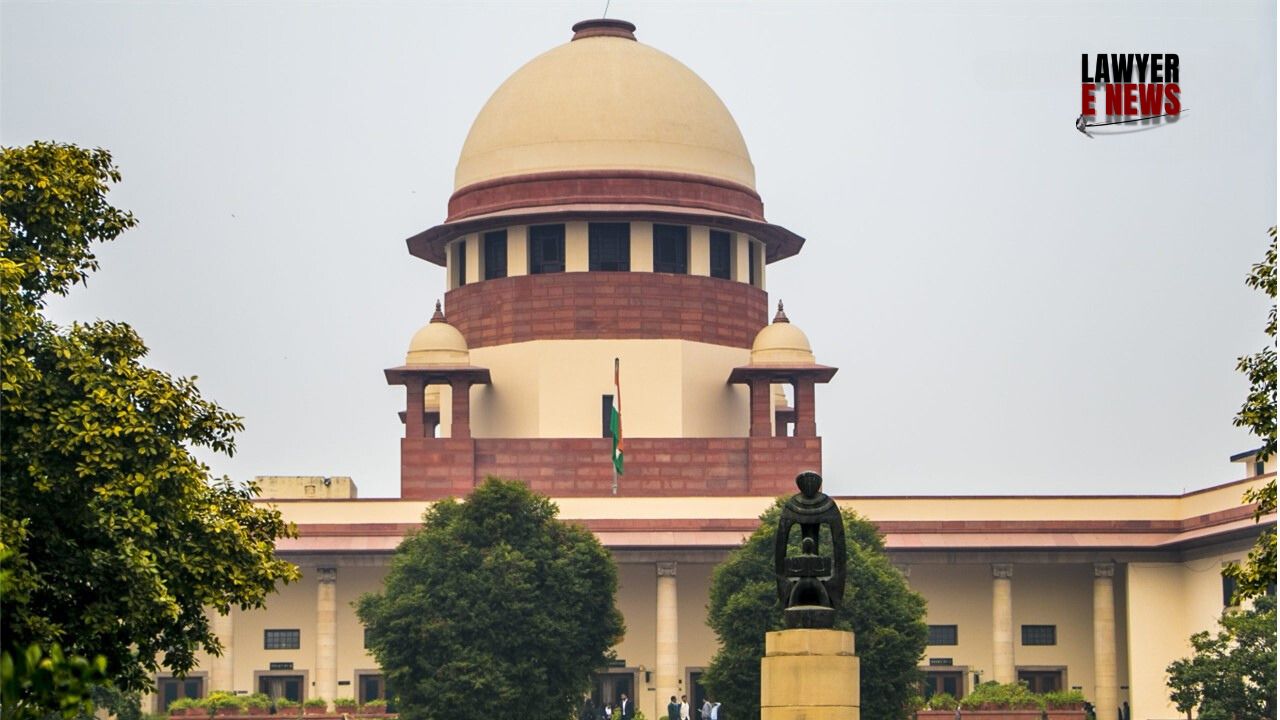-
by Admin
15 February 2026 5:35 AM



Supreme Court of India in Joginder Singh (Deceased) through LRs v. Dr. Virinderjit Singh Gill (Deceased) through LRs & Ors., dismissed objections raised in execution proceedings by successors of a co-sharer in a longstanding agricultural land partition dispute. The Court emphasized the limited powers of executing courts to modify decrees, holding that objections should be raised at the decree stage and not during execution.
The case involved a protracted land dispute over partition rights between successors of two families, Mukand Singh and Dr. Thakar Singh. Initially, Mukand Singh (predecessor of the appellants) and Chanan Singh had filed a suit for declaration of ownership and possession over half of the disputed land. The suit was decreed in their favor in 1979. Later, in 1987, Dr. Thakar Singh filed a separate partition suit for his one-fourth share in the same land.
Over the years, both parties obtained decrees defining their respective shares. When the decree from Dr. Thakar Singh’s suit was brought for execution in 2002, the appellants, as successors to Mukand Singh, objected on the grounds that the decree overlapped with the land previously awarded to them. The objections were dismissed by the executing court and the High Court, leading the appellants to file this appeal in the Supreme Court.
Maintainability of Objections under Section 47 CPC: The appellants argued that as co-sharers, they were entitled to object to the execution of the partition decree. The Supreme Court held that objections under Section 47 of the Code of Civil Procedure, which limits the scope of issues in execution, could not reopen settled matters. “Section 47 aims to prevent multiplicity of suits and does not permit collateral attacks on a final decree,” the Court noted, reinforcing that the executing court’s role is to implement, not modify, a decree.
Doctrine of Lis Pendens and Successor Rights: The Court highlighted that since the appellants acquired their share during ongoing litigation, their rights were subject to the final outcome of the partition suits under the doctrine of lis pendens (Section 52, Transfer of Property Act, 1882). As successors to Mukand Singh, the appellants were bound by any decrees issued during the pendency of related suits. “Successors are bound by lis pendens and cannot obstruct execution based on subsequent ownership claims,” the Court ruled.
Executing Court’s Powers to Modify a Decree: The Court reaffirmed the principle that an executing court cannot go behind the decree. Citing precedents, the Court held, “An executing court must enforce the decree as it stands and lacks the power to alter or amend it.” The appellants’ objections, which sought modification of the decree by re-determining co-sharer rights, were found unsustainable.
Interpretation of Procedural Irregularities: Addressing the procedural aspect, the Court observed that while the appellants erroneously cited multiple provisions (Order XXI Rules 58, 97, and Section 47 CPC) in their objections, this procedural irregularity did not impact their substantive rights. The Court reiterated, “Procedure should serve as a handmaiden to justice and not defeat substantive rights.”
Key Excerpts from the Judgment
Justice Sanjay Karol, speaking for the bench, stated:
“The purpose of an execution proceeding is to enable the decree-holder to obtain the fruits of his decree. The execution court’s mandate is to execute the decree as it stands, without entertaining collateral attacks or substantive alterations.”
The Court emphasized that objections challenging the validity of a decree should be raised through appeals at the preliminary or final decree stages, not during execution.
The Supreme Court dismissed the appeal, upholding the High Court’s order for the executing court to proceed with the enforcement of the partition decree as it was. However, recognizing the appellant’s concerns, the Court directed the first appellate court to assess the boundaries and specific parcels of land through a local commissioner to ensure clarity on the shares of each party.
The Court requested expedited handling, noting the extended litigation history of over two decades, and remarked on the need for efficient enforcement of decrees. Justice Karol concluded by citing the Privy Council’s lamentation from General Manager of the Raj Durbhunga v. Coomar Ramaput Sing (1872) on the challenges litigants face in realizing decrees, emphasizing that judicial delays in enforcement often frustrate the rights decreed.
This ruling reinforces procedural discipline in execution proceedings and underscores the limitations on objections at the execution stage. By upholding the doctrine of lis pendens and clarifying the scope of Section 47 CPC, the judgment strengthens the finality and enforceability of decrees. The decision is a reminder that while procedural fairness is paramount, objections aimed at modifying settled decrees are not permissible within the narrow scope of execution proceedings.
Date of Decision: October 17, 2024
Joginder Singh (Deceased) through LRs v. Dr. Virinderjit Singh Gill (Deceased) through LRs & Ors.
